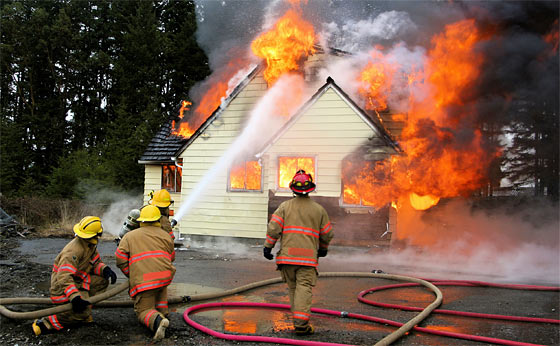Dual Sensor Smoke and Fire Alarm, and Why They Are The Best
Most so called smoke and fire alarms (smoke detectors) out there are NOT dual sensor. Most of them have a single “ionization” detector that detects flame.
The thing is…it’s usually not the fire that will kill you, it’s the smoke and it’s deadly component carbon monoxide that will end your life.
Here’s what you need to know:
The single sensor “Ionization” types rarely detect the smoke particles that will likely end your life before the fire itself does – particularly if it’s a slow smoldering fire while you’re sleeping. “Photoelectric” detectors however will detect these smoke particles and alert you – which is why you need a dual-sensor smoke detector for ultimate safety.
According to a career firefighter, “If you are sleeping, by the time the ionization sensor detects the actual flames, the smoke and the CO will most likely have already gotten to you and you will be dead”.
That’s why it’s so VERY VERY important to have a dual-sensor smoke detector.
I have installed the following two types of smoke detectors which I believe are among the best out there. These are dual sensor and are designed to alert you to both smoldering low-flame fires and high intensity rapid flame fires.
Battery Powered ‘stand-alone’ Smoke Detector
First Alert Dual Sensor Battery-Powered Smoke and Fire Alarm
‘Hardwired’ (with battery backup) Smoke Detector
These are used for homes with internal wiring (power) for smoke detectors.
First Alert Dual Sensor ‘Hardwire’ Smoke Alarm with Battery Backup
This detector will protect you 100% from fire related death/injury if used properly and placed correctly in your home.
It is important that you have the proper placement for your smoke alarms. Install your alarms at least 20 feet from appliances like furnaces and ovens, which produce combustion particles. Smoke alarms should be at least 10 feet from high humidity areas like showers and laundry rooms, and at least 3 feet from heat/AC vents. Be sure to install a smoke alarm in each bedroom, one at the top of each stairwell, and one on every level.
One way to remember to replace the battery is every time you switch the clock during daylight savings time or any time the detector chirps.
Always look for a photoelectric-ionization detector and buy one. I just replaced ALL the smoke detectors in my house because they had gone beyond their shelf life.
Did you know that smoke detectors have a limited life of 8 to 10 years?
Also make sure to have a B-C extinguisher on hand near the kitchen to put out kitchen grease fires which are the number-one cause of residential structure fires.
Hopefully you can put a small one out, but if you discharge the entire extinguisher and the fire is not out…evacuate the house immediately and make sure you or someone called 911!

